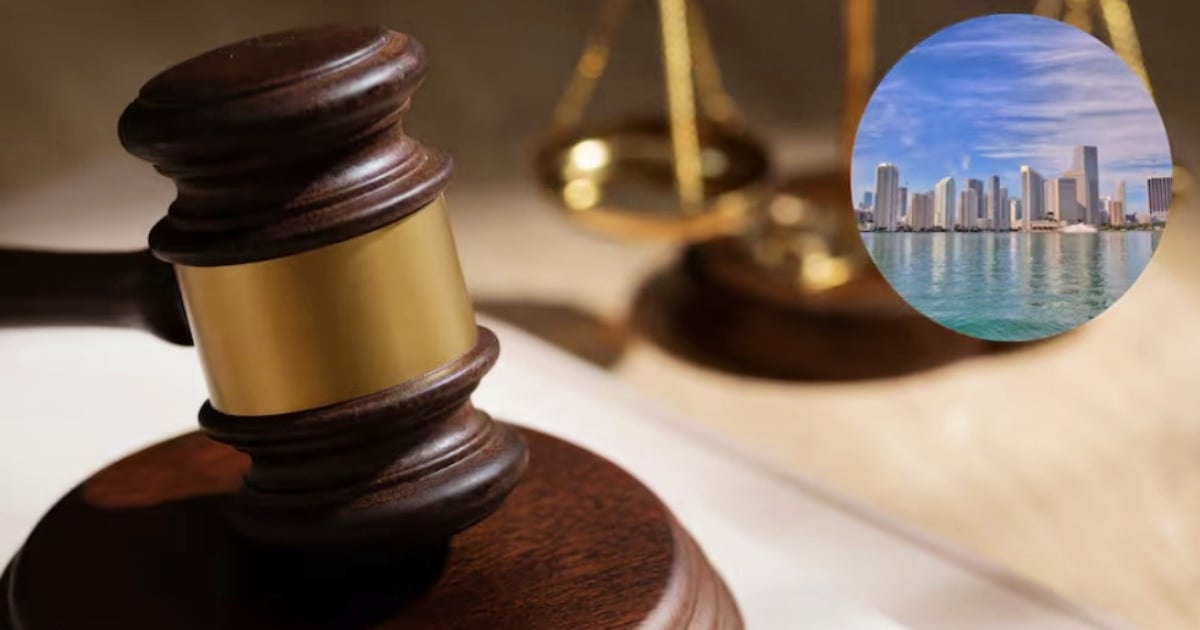Miami is grappling with an unprecedented crisis in its immigration courts, marked by an overwhelming backlog of pending cases that directly impact thousands of migrants in Florida. A report from Syracuse University, based on data from the Transactional Records Access Clearinghouse (TRAC), reveals that as of December 2024, Florida had 178,709 pending cases, with 113,239 of those in Miami alone. Nationally, the total has surpassed 3.7 million cases, underscoring the collapse of the U.S. immigration court system.
Cubans Lead Pending Asylum Cases in Miami
According to TRAC's analysis, Cuba ranks fifth among nationalities with the most pending asylum requests in the U.S., totaling 83,066 cases. In Miami, however, Cubans top the list with 41,171 open cases. They are followed by Venezuelans (16,783), Haitians (11,573), and Nicaraguans (11,407). This makes Miami the most congested jurisdiction in Florida and the entire nation, leaving thousands of Cubans waiting for answers in a system that has exceeded its operational capacity. This backlog has created profound uncertainty for many immigrants seeking to regularize their status in the country.
A System Strained by a Shortage of Judges
The report highlights that the majority of the pending cases are defensive asylum applications, those filed in response to deportation proceedings initiated by the Department of Homeland Security (DHS). In contrast, affirmative applications, which are forwarded to the Immigration Court after being denied by the U.S. Citizenship and Immigration Services (USCIS), make up a smaller portion. A significant factor worsening the crisis is the shortage of immigration judges. According to Telemundo 51, this situation deteriorated after more than twenty judges were dismissed during Donald Trump's administration, raising concerns among experts.
"In my opinion, we're talking about possibly four or five years before having availability in the courts," immigration attorney Eduardo Soto told the outlet, emphasizing the gravity of the situation. Lawyer Willy Allen also highlighted the extent of the delay, pointing out that a Cuban dissident he represents has been in the country for three years, with his first hearing scheduled for 2026.
Impact on the Migrant Community: Uncertainty and Deportation Risks
The backlog in the courts has led to desperation among migrants who depend on a favorable resolution to remain in the country. One such case is that of Cuban researcher Óscar Casanella, who fled Cuba with his pregnant wife and four-year-old son in January 2022. Despite applying for asylum over three years ago, he has yet to have a hearing before a judge. Kathleen Bush-Joseph, an expert at the Immigration Policy Institute, warns that the crisis stems from an outdated and underfunded immigration system, forcing migrants with legitimate cases to wait years for a resolution. Adding to this uncertainty is the deportation risk for those who have been in the U.S. for less than two years.
Immigration attorney Cindy Blandón explained to CNN that laws permit the expedited removal of those who do not meet this criterion, necessitating extreme caution to avoid detention by Immigration and Customs Enforcement (ICE).
Precautionary Measures to Avoid Detention
Amid an increase in arrests by ICE, asylum-seeking migrants must take precautions to avoid detention. Experts recommend avoiding unnecessary encounters with ICE agents, presenting documents and exercising the right to remain silent if detained, and retaining an immigration attorney for legal guidance. In Florida, migrants without legal status cannot access driver's licenses or official IDs, heightening the risk of arrest and deportation.
The Future of the U.S. Immigration Crisis
The asylum case backlog reflects the collapse of the U.S. immigration system. With Florida having the highest number of pending applications and Miami leading the state, thousands of migrants face years of uncertainty while awaiting resolutions to their cases. Attorneys and activists have called for immigration reforms and an increase in the number of immigration judges to alleviate the crisis. Meanwhile, thousands of Cubans remain trapped in legal limbo, hoping their cases are addressed before facing potential deportation.
Understanding the Immigration Court Crisis
What is causing the backlog in Miami's immigration courts?
The backlog is primarily due to a shortage of immigration judges and an overwhelming number of asylum cases, particularly defensive applications filed in response to deportation proceedings.
How are Cuban migrants specifically affected by this crisis?
Cuban migrants are significantly impacted, leading the list in Miami with over 41,000 pending cases. This delays their ability to obtain legal status and increases their risk of deportation.
What precautions can asylum seekers take to avoid ICE detention?
Asylum seekers should avoid unnecessary interactions with ICE, present their documentation if detained, and consult with an immigration attorney for legal advice.
